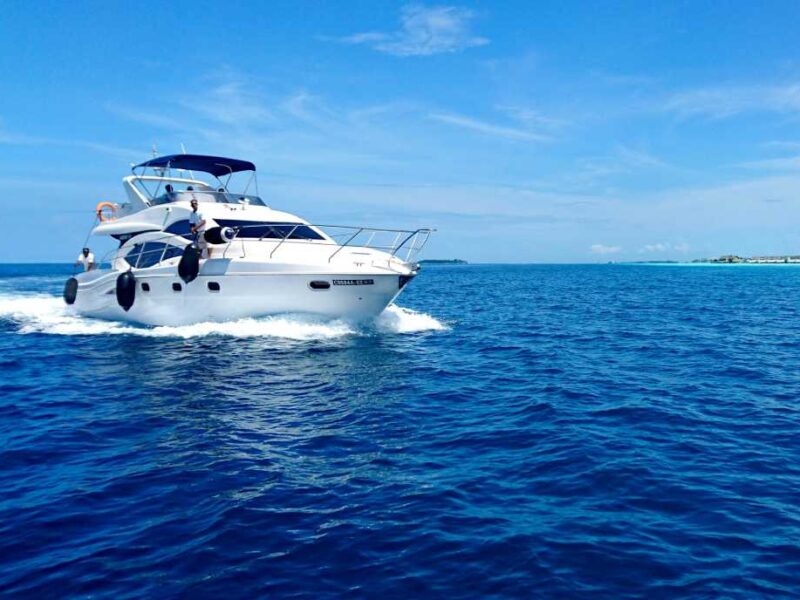Did you know that about 100 million Americans go boating each year?
Every new boater comes to the first-time marine driving experience with their own set of expectations. Some may think it’s a piece of cake, while others may wonder how on earth they’ll figure things out.
Whatever your experience level may be, you’re certain to feel more comfortable the next time you head out on the water. If you’re nervous the first time you get behind the wheel, we’ve got a few tips to help ease your anxiety.
This guide outlines what you’ll experience on your first boat trip. Read on to learn everything you need to know when you go on your next boating trip.
Contents
Required Licensing to Drive a Boat
When driving a boat for the first time, it’s important to research the current licensing regulations of the area and make sure you’re driving legally. Depending on the area, you may need to obtain a boat license. This license requires a knowledge of the rules and regulations as well as a boat safety course.
Depending on the type and size of the boat, additional licenses may also be required. It’s also a good idea to practice driving a boat while supervised before venturing out on your own. Communicate with an experienced boat driver or a marina dockmaster to ensure your boat is sea-worthy and all safety precautions are observed.
Know Your Vessel and Pre-Departure Checks
When operating a boat, you will need to familiarize yourself with it. Make sure to become familiar with all the necessary safety components, switches, equipment, and procedures. Once you have a general understanding of the vessel, take a few moments to inspect the vessel for any potential problems.
Check for the presence of fuel, oil, water, and suitable ventilation. Review the engine, electrical systems, navigation, control and bilge pumps, and auxiliary systems.
During the pre-departure check, it is also important to check the vicinity of the boat for other marine traffic and obstructions. Finally, review navigation rules and safety standards for both inland and coastal waters. Knowing your vessel and performing these pre-departure checks will help to make your first-time boat driving a rewarding and enjoyable experience.
When driving a boat, you’ll want to become familiar with the basic navigation and control techniques. Depending on the size of the boat, these techniques may differ a bit. Begin by familiarizing yourself with the layout of the vessel, including the engine, steering, and navigation equipment.
Next, learn the basic steps of maneuvering the boat as you learn how to use the throttle, steering wheel, and other controls. Lastly, learn the safety requirements and regulations regarding safe boat operation. For reliable resources and tools like nautical charts, binoculars, or navigation guides, visit https://www.amnautical.com/. With these basic skills, you will be ready to take the helm and start your boat-driving journey.
Always ensure that you have basic safety items onboard, such as life jackets and flares. Even if you are just cruising in calmer waters, it is important to pay attention to your surroundings and stay aware of other vessels in the area. With the right training and a bit of practice, you’ll be able to confidently take the helm and explore the open waters.
Understand Basic Boating Terminology
If you are new to the world of boating, it is important to understand basic boating terminology prior to boat driving. As you venture out, you will need to understand and respect the “rules of the road” for boat navigation.
Some helpful terms to understand are starboard, port, and stern. Knowing these terms will help you remain safe when navigating. Additionally, familiarize yourself with common boating signals, such as horn and hand signals.
Once you have an understanding of these basic terms, you’ll be ready to take the helm. Driving a boat requires more focus and attentiveness than driving a car due to varying currents and waves. The boat may drift slightly differently than you may expect, so it is important to be prepared and remain vigilant.
Adverse Weather and Mooring Protocol
Mooring safely and in a secure manner is a critical part of boat driving. Adverse weather can make navigating tight channels or mooring slips difficult and even dangerous. During your first boat driving experience, make sure you go out in fair-weather conditions and take some time to familiarize yourself with the mooring environment before attempting to moor or come alongside a dock.
Practice paying out and taking in fenders to get used to them and to make sure they are ready when needed. Check the weather forecast for the area before heading. This is to make sure there are no sudden changes in wind or weather conditions that could complicate mooring or other boat-driving operations.
Be sure to always keep a look out for hazards such as shallow waters, debris, and other boats. Respect the environment by following no-wake zones and restricting speed limits. Always have a reliable communication device available in case of emergency, and be sure to check the fuel level before heading out.
Finally, you should also remember to get the right boat and watercraft insurance. An insurance policy will provide the necessary coverage in the event of an accident and can significantly reduce your risks and liabilities.
It’s a good idea to check out many policies and compare them to get the one that offers the best protection for the best price. It’s better to be prepared than to be sorry later. Following these guidelines is the best way to prepare for unexpected hazards while boating.
Learning About Safe and Satisfied Marine Driving
Marine driving is a fun and exciting experience, as long as the necessary preparation and precautions are taken. Familiarize yourself with the lake, and be sure to take necessary safety precautions. These include having appropriate clearance, proper clothing, and a functional vessel.
Throughout your first experience driving, it is important to remain focused, patient, and watchful. This will ensure the safety of yourself, others, and your vessel. So, make sure to maximize your enjoyment of the experience today!
Was this article helpful? If so, keep reading for more inspiring posts.



